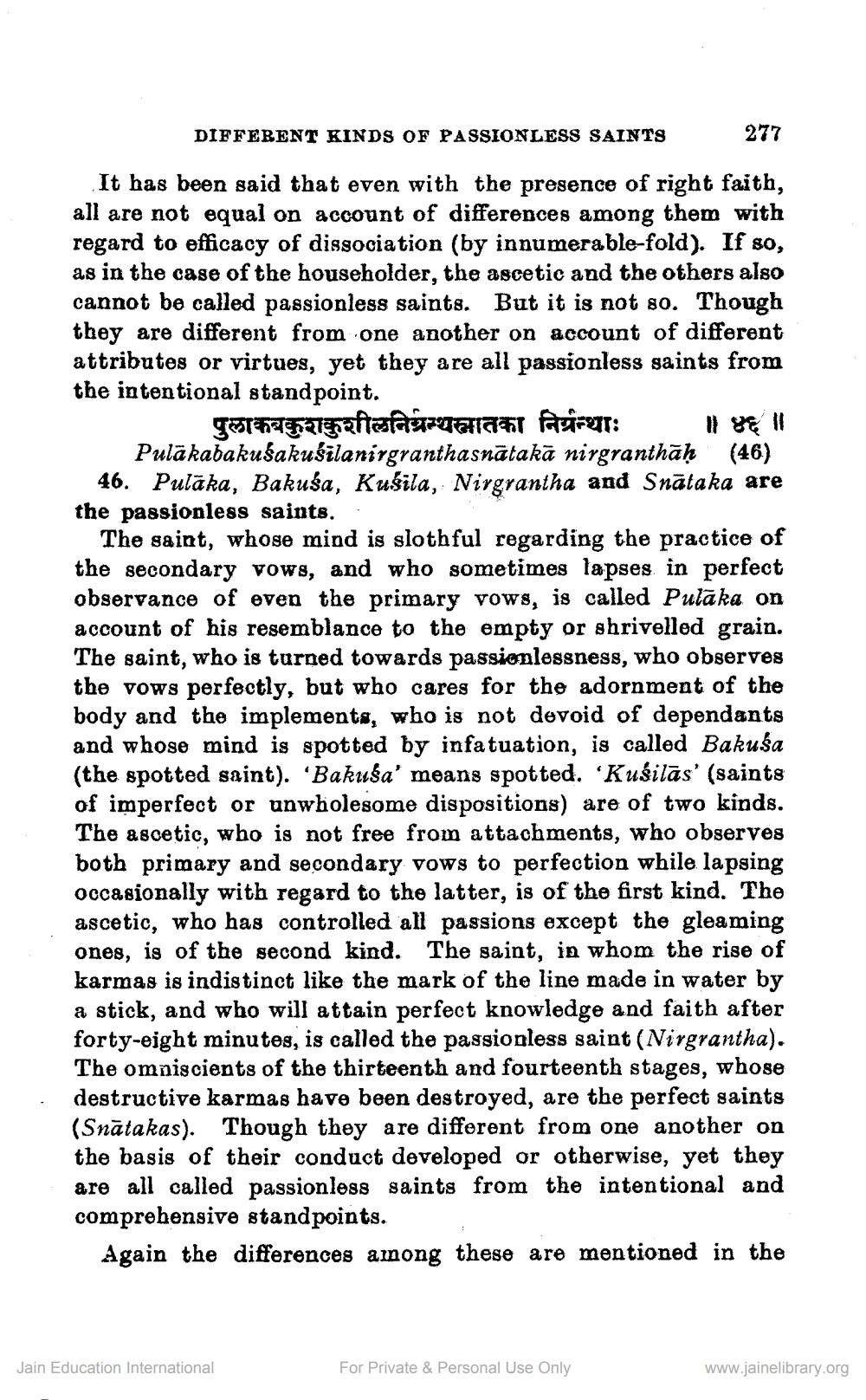________________
DIFFERENT KINDS OF PASSIONLESS SAINTS
277
It has been said that even with the presence of right faith, all are not t equal on account of differences among them with regard to efficacy of dissociation (by innumerable-fold). If so, as in the case of the householder, the ascetic and the others also cannot be called passionless saints. But it is not so. Though they are different from one another on account of different attributes or virtues, yet they are all passionless saints from the intentional standpoint.
पुलाकबकुशकुशीलनिग्रन्थस्नातका निर्ग्रन्थाः Puläkabakušakuśīlanirgranthasnātakā nirgranthāh (46) 46. Pulāka, Bakuša, Kušila, Nirgrantha and Snātaka are the passionless saints..
The saint, whose mind is slothful regarding the practice of the secondary vows, and who sometimes lapses in perfect observance of even the primary vows, is called Pulāka on account of his resemblance to the empty or shrivelled grain. The saint, who is turned towards passionlessness, who observes the vows perfectly, but who cares for the adornment of the body and the implements, who is not devoid of dependants and whose mind is spotted by infatuation, is called Bakuša (the spotted saint). “Bakuša' means spotted. “Kušilās' (saints of imperfect or unwholesome dispositions) are of two kinds. The ascetic, who is not free from attachments, who observes both primary and secondary vows to perfection while lapsing occasionally with regard to the latter, is of the first kind. The ascetic, who has controlled all passions except the gleaming ones, is of the second kind. The saint, in whom the rise of karmas is indistinct like the mark of the line made in water by a stick, and who will attain perfect knowledge and faith after forty-eight minutes, is called the passionless saint (Nirgrantha). The omniscients of the thirteenth and fourteenth stages, whose destructive karmas have been destroyed, are the perfect saints (Snātakas). Though they are different from one another on the basis of their conduct developed or otherwise, yet they are all called passionless saints from the intentional and comprehensive standpoints.
Again the differences among these are mentioned in the
Jain Education International
For Private & Personal Use Only
www.jainelibrary.org




